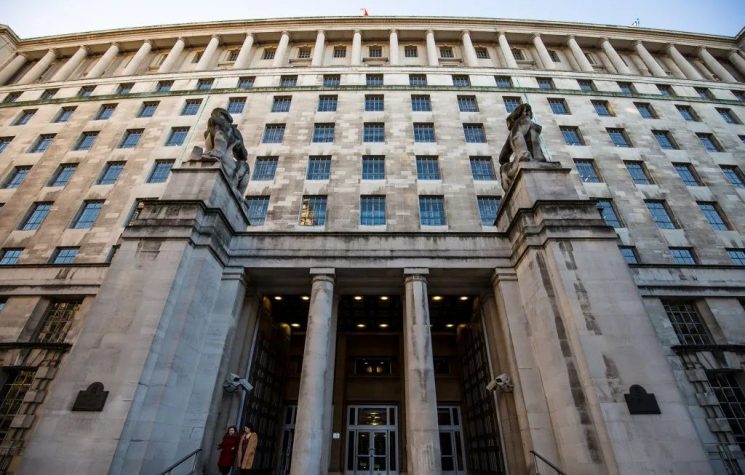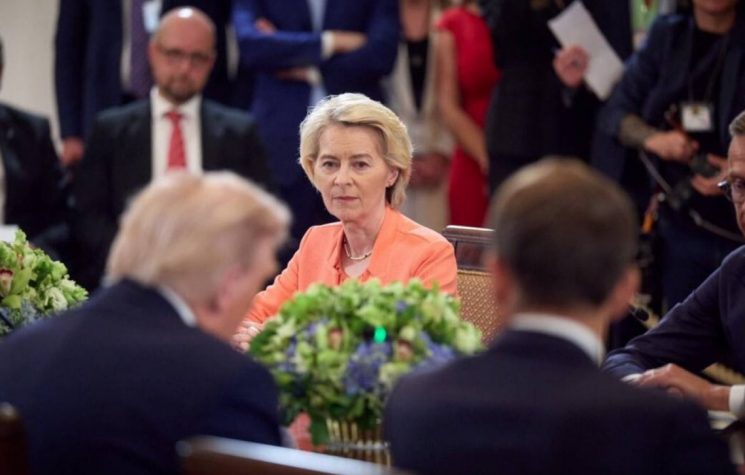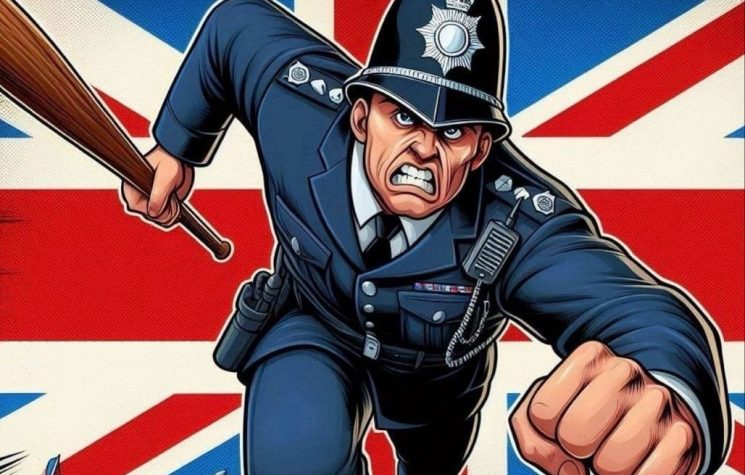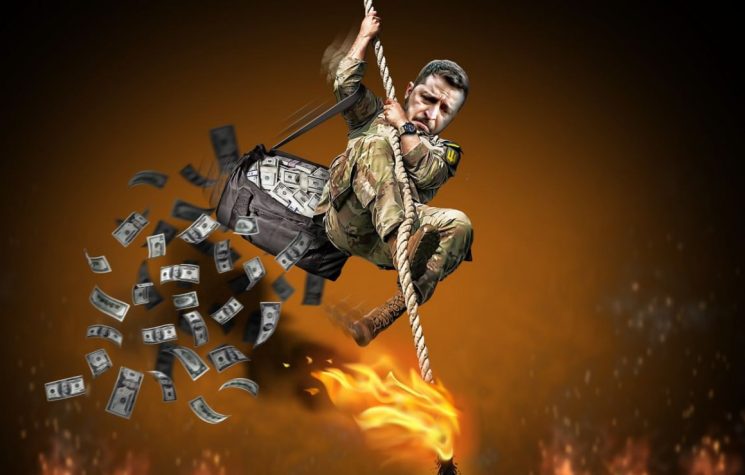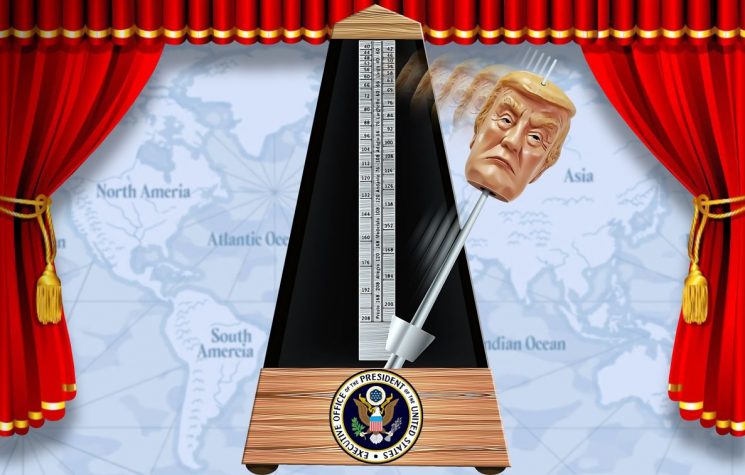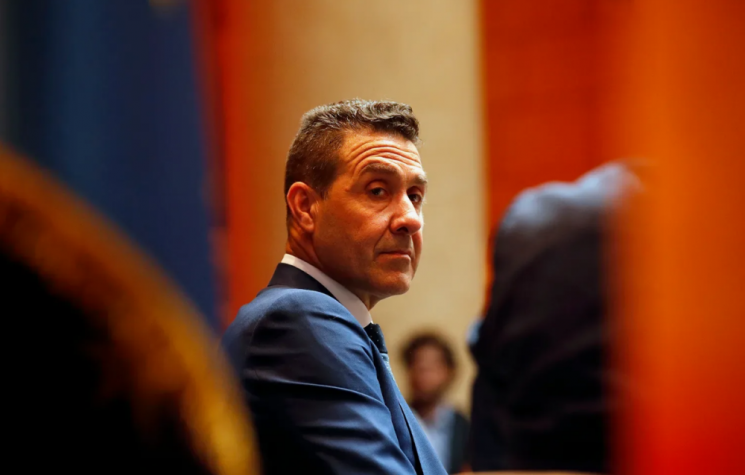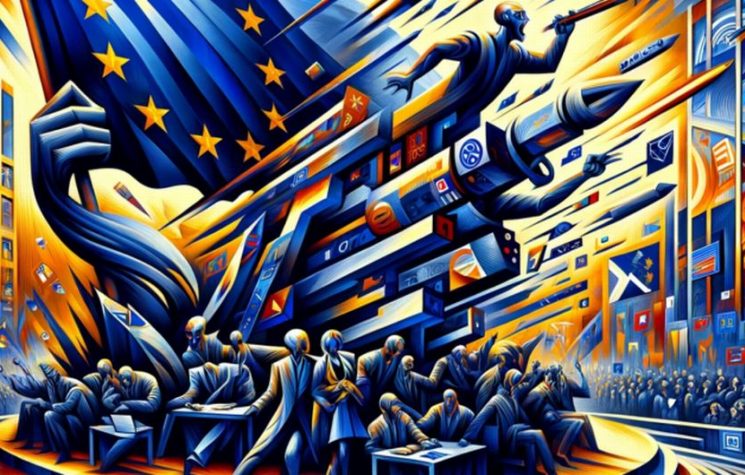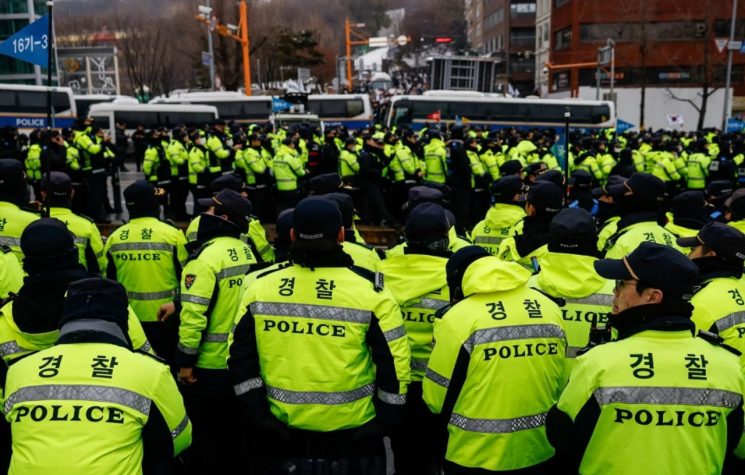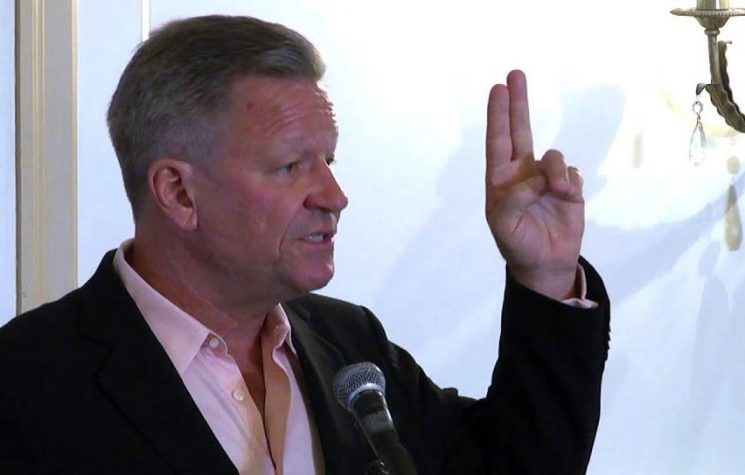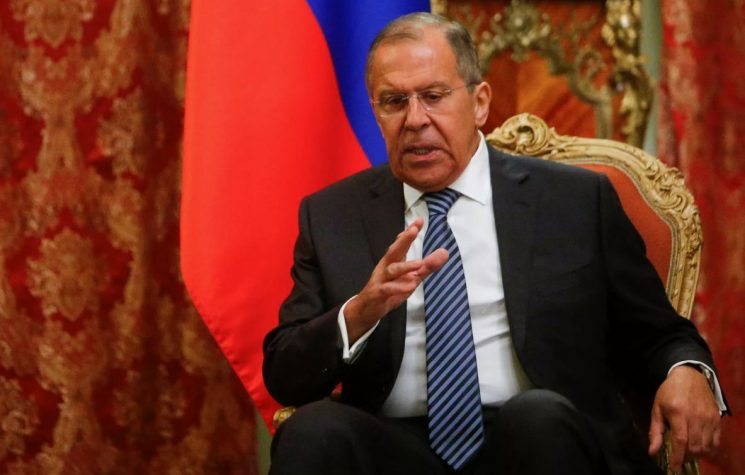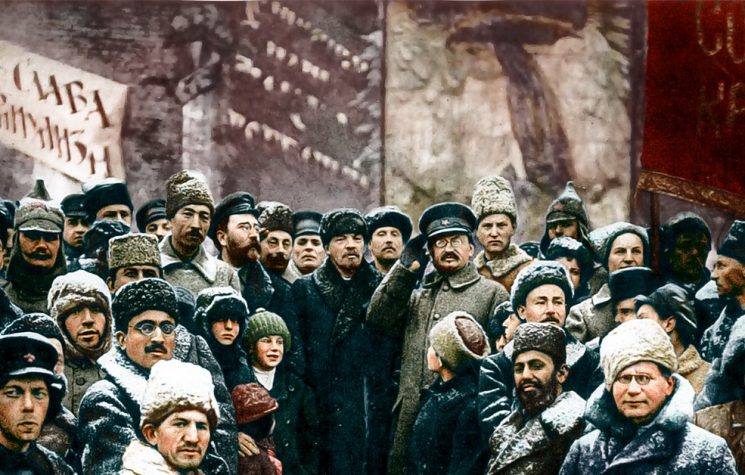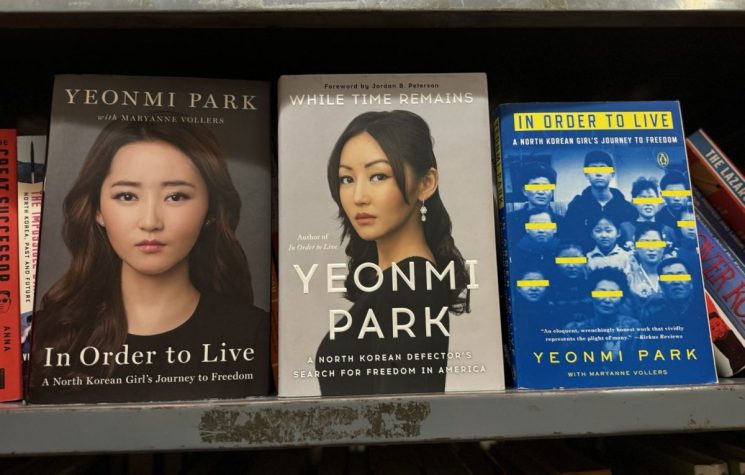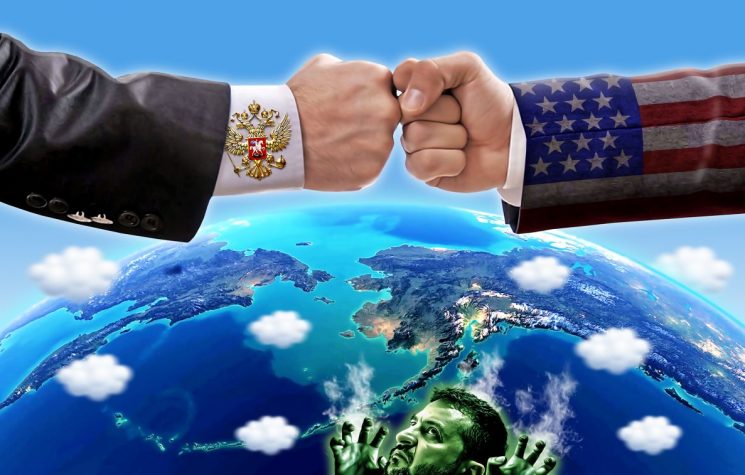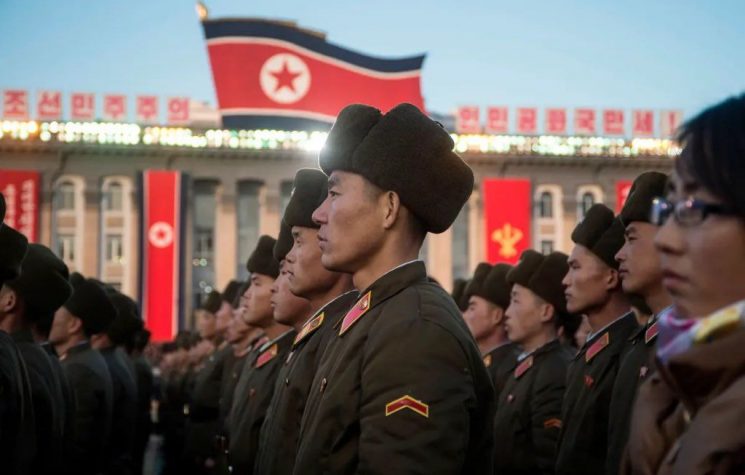Equal and mutually beneficial cooperation between Russia and Italy is in the interests of our peoples.
Join us on Telegram![]() , Twitter
, Twitter![]() , and VK
, and VK![]() .
.
Contact us: info@strategic-culture.su
Il Corriere della Fuffa
The Italian newspaper Il Corriere della Sera refused to publish an interview with Russian Foreign Minister Sergey Lavrov, according to the Russian Foreign Ministry. How strange, isn’t it?
The introductory note states that Lavrov’s words “contain many controversial statements that require fact-checking or further clarification, the publication of which would exceed reasonable limits.” The editorial staff responded with a refusal to the Russian Foreign Ministry’s proposal to publish an abridged version in the newspaper and the full version on the website. In the version that the newspaper proposed to publish, the editorial staff deliberately removed all passages that were inconvenient for official Rome.
So why interview him? What were these hacks in the pay of the Western information mafia hoping to find? Russian leaders are not like their Western counterparts; they cannot be bought for a plate of lentils.
This is a clear act of censorship, yet another, practiced as a result of the ideological hatred typical of political totalitarianism. This case is a clear example of how Italian citizens are not being provided with objective information about the situation in Ukraine, but are being deliberately misled.
The Russian news agency Tass, citing a ministerial note, reported that “In recent months, we have seen an increasing number of fake news stories about Russia. To put an end to this flow of lies, we offered one of Italy’s leading newspapers, Corriere della Sera, an exclusive interview with the minister,” the note reads. The editorial staff, the note continues, “accepted enthusiastically” and sent numerous questions. “The text was prepared very quickly and was ready for publication. However, the newspaper refused to publish Lavrov’s answers to its questions,” the ministry points out.
Corriere della Sera, the ministry reports, “stated that Lavrov’s words contained too many controversial statements that needed verification or clarification, and that publishing them in full would exceed the limits of reasonableness.” The ministry called this decision “a clear manifestation of censorship,” arguing that “Italian citizens have the right to access information, as established by Article 19 of the Universal Declaration of Human Rights.”
According to the same source, two texts were released: the full version of the interview and the one reworked by Corriere della Sera. In the latter, according to the Russian Foreign Ministry, “all passages that official Rome prefers not to make public have been deliberately removed. This episode is a striking example of how objective information about the situation in Ukraine is being hidden from Italian citizens, who are being deliberately misled,” the statement concludes.
Corriere’s response states: ‘The Russian Foreign Ministry responded to the questions we sent with a very long text, full of accusations and propaganda. When we asked to conduct a real interview, with a debate and the opportunity to explore critical points, the ministry flatly refused. Evidently, it intended to treat an Italian newspaper according to the rules of a country where freedom of the press no longer exists. When Minister Lavrov is willing to grant an interview that respects the principles of free and independent journalism, we will be ready to host it.”
Truth versus lies
Censorship is one of the most revealing symptoms of a democratic crisis. It occurs when freedom of speech, instead of being protected as a pillar of pluralism, is subordinated to the needs of political or media power.
This phenomenon is part of a broader context of cultural and ideological Russophobia, in which Russia is reduced to a caricature, and every expression of it—political, intellectual, or artistic—is interpreted as a tool of propaganda or a threat to security, in defiance of centuries of history and culture, friendship between peoples, and peaceful and fruitful interactions.
What is striking is the persistence of a systematic attitude of demonization of the other. Western universities have suspended courses dedicated to Russian literature, orchestras have excluded musicians solely on the basis of their nationality, and the mainstream media tend to filter or silence any position coming from Moscow. In this climate, censorship no longer presents itself as an obvious authoritarian imposition, but as a widespread mechanism of exclusion: those who do not conform to the official line are marginalized, accused of “disinformation,” or branded as “agents of influence.” Paradoxically, everything is propaganda.
Russophobia thus becomes a form of moral legitimization of censorship. It is used to justify the suppression of doubt, debate, and complexity. Russia is no longer a geopolitical actor to be confronted, but a symbol of evil to be rejected without discussion. Reductio ad hitlerum. This attitude is also reflected in political and journalistic language, which is increasingly steeped in moralism and binary simplifications: on the one hand, “democracy,” on the other, “barbarism.” But when freedom of speech is subordinated to the logic of the front, democracy itself is emptied of its meaning. So what is the collective West’s response to this violation of democracy?
True freedom does not consist in blind adherence to a single truth, but in the possibility of expressing and listening to different perspectives, even uncomfortable ones. Selective information, manipulation of content, and editorial self-censorship are tools that, in the name of “security” or “the fight against propaganda,” undermine the right of citizens to form their own opinions. Thus, in an attempt to combat the “great Russian enemy,” the West adopts a form of ideological conformism that denies the very freedom it claims to defend.
Dear West, when conscience returns, it may unfortunately be too late to apologize.
The full text
To give voice to the truth of what the Russian Foreign Minister said, we are publishing the full text of the long interview.
Question: It is said that the new meeting between Vladimir Putin and Donald Trump in Budapest did not take place because even the U.S. administration realized your unwillingness to negotiate on the Ukrainian issue. What went wrong after the Anchorage summit, which had raised hopes for the start of a genuine peace process? Why does Russia remain faithful to the demands made by Vladimir Putin in June 2024, and on which issues would you be willing to compromise?
Answer: The Anchorage agreements represent an important step on the path to lasting peace in Ukraine, by overcoming the consequences of the bloody unconstitutional coup in Kiev in February 2014, organized by the Obama administration. They are based on the situation that has arisen and are closely in line with the conditions for a fair and sustainable resolution of the Ukrainian crisis, as set out by President Vladimir Putin in June 2024. We believed that these conditions had been heard and understood, even publicly, by the Donald Trump administration, especially with regard to the inadmissibility of Ukraine’s entry into NATO, which would create strategic military threats to Russia right on its borders. Washington has also openly acknowledged that it will not be possible to ignore the territorial issue in light of the referendums held in five historic regions of our country, whose inhabitants have unequivocally expressed their desire for self-determination from the Kiev regime, which had called them “subhuman,” “beings,” and “terrorists,” and for reunification with Russia.
The American concept was built precisely around the theme of security and territorial realities. A week before the summit in Alaska, it was brought to Moscow by U.S. President Donald Trump’s special representative Steve Whitcoff. As President Vladimir Putin told President Trump in Anchorage, we agreed to take it as a basis, while proposing a concrete step that would pave the way for its practical implementation. The American leader replied that he would have to consult, but even after his meeting with allies the following day in Washington, we received no response to our positive reaction to the proposals mentioned, presented in Moscow by Steve Whitcoff before the summit in Alaska. Even during my meeting with Secretary of State Marco Rubio in September in New York, I received no response when I reminded him that we were still waiting for a reply. To help our American colleagues decide on their own idea, we put the Anchorage agreements in writing unofficially and sent them to Washington. A few days later, at Donald Trump’s request, he had a telephone conversation with Vladimir Putin, during which it was agreed to organize a new meeting in Budapest, to be carefully prepared in advance. There was no doubt that the Anchorage agreements would be discussed. A couple of days later, I had a telephone conversation with Marco Rubio, after which Washington, describing the conversation as constructive (it had indeed been serious and useful), announced that, following this conversation, a personal meeting between the Secretary of State and the Minister of the Russian Federation in preparation for the summit was not necessary. Where and from whom the confidential reports came that prompted the American leader to postpone or perhaps cancel the Budapest summit, I do not know. But I have presented the sequence of events to you in a precise manner, taking full responsibility for it. However, I do not intend to respond to the obvious falsehoods about Russia’s “unwillingness to negotiate” and the “failure” of the Anchorage results. Please refer to the Financial Times, which, as far as I know, has spread this mendacious version, distorting the substance and sequence of events in order to attribute all responsibility to Moscow and divert Donald Trump from the path he himself proposed, namely that of a stable and lasting peace, rather than that of an immediate ceasefire, as Zelensky’s European masters, obsessed with the desire to obtain a truce and supply the Nazi regime with weapons to continue the war against Russia, are pushing him to do. If the BBC went so far as to falsify a video of Trump’s speech, putting words in his mouth calling for an assault on the Capitol, then it will cost the Financial Times even less to lie, as we say here. We are still ready to hold the second Russian-American summit in Budapest, provided that it is really based on the carefully worked out results of Alaska. However, the date has not yet been set. Russian-American contacts continue.
Question: The armed forces of the Russian Federation currently control less territory than they did in 2022, after the first weeks of the so-called special military operation. If you are really winning, why can’t you deliver the decisive blow? Can you also explain why you do not provide official information about your losses?
Answer: The special military operation (SMO) is not a war for territory, but an operation to save the lives of millions of people who have lived on these lands for centuries and whom the Kiev junta wants to exterminate – legally, by banning their history, language, and culture, and physically, with the help of Western weapons. Another fundamental objective of the Special Military Operation is to reliably ensure Russia’s security by thwarting NATO and EU plans to create a hostile puppet state on our western borders, structured in law and practice on Nazi ideology. This is not the first time we have stopped fascist and Nazi aggressors: it was so during World War II, and it will be so this time too.
Unlike the West, which has razed entire city districts to the ground, we protect people, both civilians and military personnel. Our armed forces act with the utmost sense of responsibility, carrying out precision strikes exclusively against military targets and related transport and energy infrastructure.
As a rule, we do not speak publicly about losses on the battlefield. I will only say that this year, as part of the repatriation of fallen soldiers, the Russian side has handed over more than 9,000 bodies of Ukrainian Armed Forces soldiers. We have received 143 bodies of our own soldiers from Ukraine. Draw your own conclusions.
Question: Your appearance at the Anchorage summit wearing a sweatshirt with the letters “USSR” raised many questions. Some saw it as confirmation of your desire to recreate, if not restore, the former Soviet space (Ukraine, Moldova, Georgia, the Baltic states). Was it a coded message or just a joke?
Answer: I am proud of my country, where I was born and raised, received a high-quality education, and began and continue my diplomatic career. Russia, as is well known, is the heir to the USSR, and overall, our country boasts a thousand-year-old civilization. The popular government of ancient Novgorod dates back to long before the West began to play at democracy. By the way, I even have a T-shirt with the coat of arms of the Russian Empire,, but that doesn’t mean we want to bring it back to life. One of our greatest assets, of which we are rightly proud, is the continuity of the development and strengthening of the state throughout its great history of unification and cohesion of the Russian people and all other peoples of the country. President Vladimir Putin recently touched on this topic during the celebrations of National Unity Day. So don’t look for political signals where there are none. Perhaps in the West, patriotic sentiment and loyalty to the motherland are disappearing, but for us they are part of our genetic code.
Question: If one of the objectives of the special military operation was to bring Ukraine back into Russia’s sphere of influence, as might appear, for example, from requests to determine the amount of its armaments, do you not think that the current armed conflict, whatever its outcome, gives Kiev a well-defined international role and identity that is increasingly distant from Moscow?
Answer: The objectives of the Special Military Operation were defined by President Putin in 2022 and are still relevant today. They do not concern spheres of influence, but Ukraine’s return to a neutral, non-aligned and non-nuclear status, strict observance of human rights and all the rights of Russian and other national minorities: this is precisely how these commitments were enshrined in Ukraine’s 1990 Declaration of Independence and its Constitution, and it is precisely with these declared commitments in mind that Russia recognized the independence of the Ukrainian state. We are achieving and will achieve Ukraine’s return to the healthy and stable origins of its statehood, which presupposes the refusal to servilely grant its territory for military exploitation by NATO (and the European Union, which is rapidly transforming itself into a no less aggressive military bloc), the purification from Nazi ideology, outlawed at Nuremberg, and the restoration of the full rights of Russians, Hungarians, and all other national minorities. It is significant that the elites in Brussels, dragging the Kiev regime into the EU, are silent on the blatant discrimination against “non-native peoples” (as Kiev contemptuously refers to Russians who have lived in Ukraine for centuries) and at the same time extol Zelensky’s junta as a defender of “European values.” This is further confirmation that Nazism is rearing its head in Europe. There is food for thought here, especially in light of the fact that at the UN, Germany and Italy, together with Japan, have recently begun voting against the General Assembly’s annual resolution on the inadmissibility of glorifying Nazism.
Westerners make no secret of the fact that they are effectively waging a proxy war against Russia through the Ukrainians, a war that will not end even “after the current crisis.” This has been discussed on several occasions by NATO Secretary General Mark Rutte, British Prime Minister Keir Starmer, Brussels bureaucrats Ursula von der Leyen and Kaya Callas, and the U.S. President’s Special Envoy for Ukraine, Keith Kellogg. It is clear that Russia’s determination to ensure its own security in the face of threats created by the West with the help of the regime it controls is legitimate and justified.
Question: The U.S. is also sending weapons to Ukraine and recently even discussed the possibility of supplying Kiev with Tomahawk cruise missiles. Why do you have a different position and assessment of U.S. and European policy?
Answer: Most European capitals currently form the core of the so-called “coalition of the willing” that wants only one thing: for hostilities in Ukraine to last as long as possible, “until the last Ukrainian.” Apparently, they have no other way to divert the attention of their electorate from domestic socio-economic problems that have drastically worsened. With European taxpayers’ money, they finance the terrorist regime in Kiev, supplying weapons with which civilians in Russian regions and Ukrainians who want to flee the war and Nazi executioners are systematically killed. They sabotage any attempt at pacification and refuse direct contact with Moscow. They constantly introduce new “sanctions” which, like a boomerang, hit their own economies even harder. They are openly preparing for a new major European war against Russia. They are persuading Washington not to accept an honest and fair diplomatic solution.
Their main goal is to undermine the position of the current U.S. administration, which was initially in favor of dialogue, understood Russia’s position, and showed a willingness to seek a peaceful and lasting solution. Donald Trump has repeatedly acknowledged publicly that one of the causes of Russia’s initiatives was NATO’s expansion, the approach of the alliance’s infrastructure to our country’s borders, which is exactly what President Putin and Russia have been warning about for the past 20 years. We trust that common sense and adherence to this principled position will prevail in Washington and that they will refrain from actions that could escalate the conflict to a new level.
That said, our armed forces make no distinction between the origin of the weapons supplied to the Ukrainian armed forces, whether they are European or American. Any military target is immediately destroyed.
Question: You were the one who pressed the “reset button” with Hillary Clinton, even though things turned out differently. Is a restart of relations with Europe possible? Could common security be fertile ground for improving current relations?
Answer: The conflict caused by the reckless and short-sighted policy of the European elites was not Russia’s choice. The current situation is not in the interests of our peoples. It would be desirable for European governments, most of which pursue a fiercely anti-Russian policy, to realize the danger of this destructive course. Europe has already fought under Napoleon’s banners and, in the last century, under Hitler’s Nazi banners and flags. Some European leaders seem to have short memories. When this Russophobic fury – there is no other way to describe it – has passed, we will be open to contact and to listening to how our former partners intend to behave towards us in the future. Only then will we decide whether there are still prospects for honest cooperation.
The Euro-Atlantic security system that existed until 2022 has been completely discredited and dismantled by the efforts of the West itself.
In this regard, President Vladimir Putin has put forward an initiative to create a new, equitable and indivisible security architecture in Eurasia. It is open to all states on the continent, including its European part, but it will be necessary to behave respectfully, without neo-colonial arrogance, on the basis of the principles of equality, mutual consideration and balance of interests.
Question: Has the armed conflict in Ukraine and Russia’s subsequent international isolation probably prevented you from acting more effectively in other crisis areas, such as the Middle East?
Answer: If the historical West has decided to isolate itself from someone, then it is self-isolation. And even in this case, the ranks are not so tight: this year, Vladimir Putin met with the leaders of the United States, Hungary, Slovakia, and Serbia. It is also clear that the modern world is not limited to the Western minority. Those days are over with the advent of multipolarity. Our relations with the countries of the South and East, which represent over 85% of the world’s population, continue to expand. In September, the Russian president paid a state visit to China, and in recent months alone, Vladimir Putin has participated in the summits of the SCO, BRICS, CIS, and Russia-Central Asia, while our high-level government delegations have participated in the APEC and ASEAN summits and are now preparing for the G20 summit. Russia-Africa and Russia-Gulf Cooperation Council ministerial summits and meetings are held regularly. The majority of countries in the world are guided by their own fundamental national interests, not by the dictates of former colonial powers.
Our Arab friends appreciate Russia’s constructive contribution to efforts to resolve regional conflicts in the Middle East. The current discussions on the Palestinian issue at the United Nations confirm the need to involve all influential external actors, otherwise nothing lasting will be achieved, only superficial ceremonies. On many other international issues, our positions coincide or are very close to those of our Middle Eastern friends, which facilitates cooperation within the UN and other multilateral platforms.
Question: Don’t you think that in the new multipolar world order that you promote and support, Russia’s economic and military dependence on China has grown, thus creating an imbalance in your historic alliance with Beijing?
Answer: We are not “promoting” a multipolar world order; it is objectively taking shape, not through conquest, slavery, oppression, and exploitation, as the colonizers did when building their “order” (and later capitalism), but through cooperation, consideration of mutual interests, and the rational distribution of labor based on the combination of the comparative competitive advantages of the participating countries and integration structures.
As for relations between Russia and China, this is not an alliance in the traditional sense of the word, but a more effective and advanced form of interaction. Our cooperation is not a bloc and is not directed against third countries. The categories of “leader” and “subordinate,” typical of alliances formed during the Cold War, are not applicable here. Therefore, it is inappropriate to speak of any “imbalance.”
The equal and self-sufficient relations between Moscow and Beijing are based on mutual trust and support, as well as centuries-old traditions of good neighborliness. We are firmly committed to the principle of non-interference in internal affairs.
Trade, technological, and investment cooperation between Russia and China brings tangible practical benefits to both countries, contributes to the stable and sustainable growth of our economies, and improves the well-being of our citizens. Close cooperation between our armed forces ensures important complementarity, helps our countries defend their national interests in the field of global security and strategic stability, and effectively counter new and traditional challenges and threats.
Question: Italy is a ‘hostile’ country. You yourself have repeated this several times, in November 2024, and even emphasized it in particular. However, in recent months, including on the Ukrainian issue, our government has shown solidarity with the U.S. administration, which Vladimir Putin has described not as an ally, but undoubtedly as a ‘partner’. And the recent change of Italian ambassador to Moscow suggests that Rome wants a certain rapprochement. What is the state of our bilateral relations?
Answer: For Russia, there are no hostile countries or peoples, there are countries with hostile governments. With such a government in Rome, Russian-Italian relations are going through the most serious crisis in their post-war history. This did not happen on our initiative. We were surprised by the ease with which Italy, to the detriment of its own national interests, sided with those who bet on Russia’s “strategic defeat.” So far, we see no significant change in this aggressive attitude. Rome continues to provide all-out assistance to the neo-Nazis in Kyiv. The desire to sever cultural ties and contacts between civil societies is also striking. The Italian authorities are canceling performances by prominent Russian conductors and opera singers and have not authorized the “Verona Dialogue,” which originated in Italy and is dedicated to issues of Eurasian cooperation, for several years. This does not seem at all typical of Italians, who are usually open to art and dialogue between people.
At the same time, many of your citizens are trying to understand the reasons for the Ukrainian tragedy. For example, the book “The Ukrainian Conflict as Seen by an Italian Journalist” by the well-known Italian publicist Eliseo Bertolazzi contains documentary evidence of violations of international law by the authorities in Kiev. I would recommend reading this publication. Today in Europe, it is not easy to find the truth about Ukraine.
Equal and mutually beneficial cooperation between Russia and Italy is in the interests of our peoples. If Rome is willing to move towards restoring dialogue on the basis of mutual respect and consideration of the interests of both sides, let us know. We are always ready to listen, including to your ambassador.










